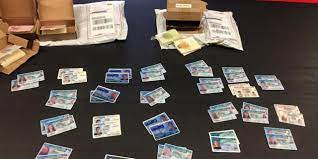With the rise of digital technology, holograms and fake id making have become increasingly popular.
Whether you’re a business owner looking to create an immersive experience or someone looking for an easy way to get around laws and regulations, it’s important to understand the legal implications of working with holograms and fake IDs.
IDGod has been providing superior ID makes or designs for years, so let’s take a look at what you need to know about the legalities of working with holograms and fake IDs.
The Legality of Holograms
Holography is a form of optically encoded information that can be used for a variety of purposes, including identification cards and security documents.
However, there are certain restrictions on who can produce hologram images without violating any laws. Depending on where you live, it may be illegal to make or possess these images without proper licensing or authorization from the applicable authority.
Additionally, in some cases it may be illegal to use them for commercial purposes, such as creating promotional materials or advertisements.
The Legality of Fake ID Making
Fake IDs are generally used by individuals who want to bypass age restrictions or other regulations imposed by law enforcement agencies. While it may seem like an easy solution to getting around legal requirements, using fake IDs is actually a very serious offense that can carry hefty penalties if caught.
In many states, simply possessing a fake ID is considered a criminal offense punishable by fines and/or jail time. Furthermore, producing fake IDs for monetary gain can result in even harsher consequences up to and including felony charges depending on the jurisdiction in which you reside.
Conclusion:
As technology continues to evolve so too does our understanding of the legalities surrounding holograms and fake ID making. It’s important to take into account all relevant laws when considering whether these technologies should be used in your situation — especially when they involve commercial applications — as failure to do so could result in significant penalties if caught.


